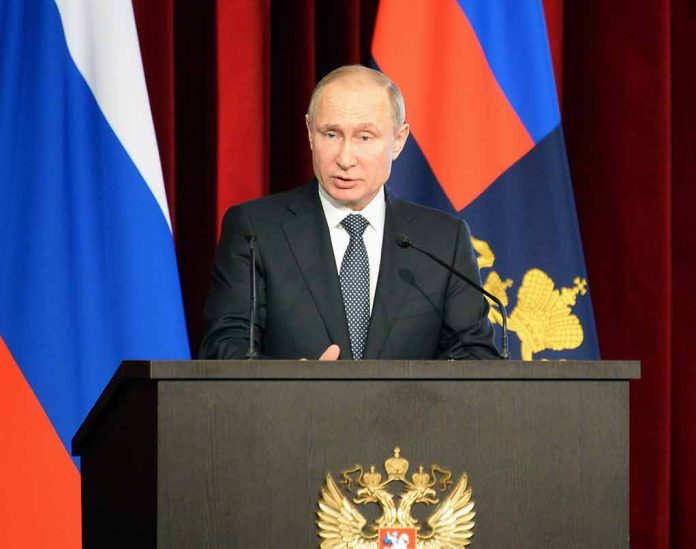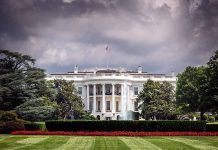
Putin’s plea for Israeli withdrawal from Syria adds tension to an already volatile region—yet Russia’s stance aims to promote peace.
At a Glance
- Russia calls on Israel to remove its military from Syria.
- Russian troops vacate Syrian bases following Assad’s fall.
- Iran and Hezbollah fill the void left by Russian withdrawal.
- Putin’s comments highlight geopolitical complexities in Syria.
Putin’s Call for Israeli Withdrawal
Russian President Vladimir Putin has publicly urged Israel to remove its military from Syria amid escalating tensions. During his annual press conference, Putin emphasized the need for de-escalation in the region, reaffirming Russia’s role as a key player in Middle Eastern diplomacy. The Kremlin’s position sheds light on ongoing military and political maneuvers, adding a layer of complexity to already strained relations between regional powers.
Despite calls for withdrawal, Israeli forces remain in Syria. Putin highlighted the deployment of additional Israeli troops, casting doubt on Israel’s commitment to leaving the conflict zone. Russian media reports suggest skepticism from the Kremlin regarding Israel’s intentions, with allegations of benefiting from the Assad regime’s downfall.
Putin says Russia not defeated in Syria, plans to meet with Assad https://t.co/dWdj6uAPso
— The Times of Israel (@TimesofIsrael) December 19, 2024
The Russian Military Shift
Parallel to calls for Israeli withdrawal, Russia reportedly began retracting its forces from Syria. Convoys have been seen leaving as military operations wind down following Assad’s departure. Russia’s decision to pull out has left a power vacuum increasingly filled by Iranian and Hezbollah forces, complicating the balance of power and altering Russia’s influence in the region.
Iran and Hezbollah’s military expansions on Syrian soil pose significant challenges for Israel and potentially jeopardize Russia’s hard-won gains. Russia historically acted as a deterrent against this encroachment, maintaining a complex role in regional geopolitics. Now, the absence of Russian restraint could lead to “catastrophic consequences for the entire region,” in Putin’s own words.
Implications of Regional Instability
The evolving military landscape following Russia’s partial withdrawal has broad implications. The U.S. and other Western powers face renewed challenges as Russia’s reduced presence potentially incites increased volatility. Iran’s rising influence complicates diplomatic relations and amplifies security concerns, necessitating a strategic reassessment by involved countries.
“We hope that Israel will at some point leave the territory of Syria. But now it is bringing in additional troops,” Putin said at his annual end-of-year press conference.
The geopolitical interdependencies in Syria emphasize the complexity of achieving sustainable peace in the region. Putin’s requests reflect Russia’s ongoing struggle to balance territorial and diplomatic considerations. As Syrian dynamics continue to evolve, global players must navigate a delicate geopolitical chessboard where the stakes remain critically high.








